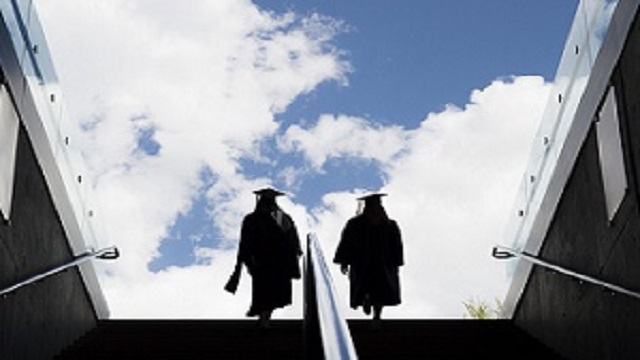
This comes after Statistics SA announced in Pretoria on Tuesday that the number of students graduating from local public universities had risen to 203 078 in 2016 — compared with 191 524 in 2015, 185 373 in 2014, 180 822 in 2013 and 165 995 in 2012.
In addition, of the 975 837 total students enrolled in higher education institutions in 2016, 72 percent — or 701 482 of them — were black Africans, while six percent were Coloured and five percent Indian. More females — 58, 1 percent of all students — were also studying at universities, compared to males (41, 9 %).
“It is most pleasing to note that despite the many challenges facing higher education — and these challenges are accentuated at Technical Vocational Education and Training (TVET) and community colleges — graduation numbers are rising and commendable transformation is continuing to take place at our institutions of higher learning, with ever more students from disadvantaged backgrounds now accessing higher education.
“I’m also very proud of the fact that we continue to empower the girl child as a nation, as confirmed by the fact that nearly 60 percent of all students studying at higher education institutions are females,” Prof Mkhize said.
She also welcomed the news that of the increased national spending on higher education of R67,4 billion in 2016 — a R6,4 billion increase on the comparative 2015 figure — 44,6 percent of this was made up of grants (compared with 41,1% in 2015).
“While these figures represent very good news, the fact is that we should do more as a country to open up higher education to previously disadvantaged communities. This is why the government continues to prioritise the sector, and rightly so, with public grants received by our universities from the fiscus amounting to a substantial R30 billion in 2016, compared with R25 billion in 2015.
“And as we prioritise higher education generally, we will also work hard to give enhanced support and bridge the unacceptable gap between historically disadvantaged universities and their wealthier, historically white sister institutions,” Minister Mkhize said.
The increasing investment in universities by the government also comes as the country’s institutions of higher learning continue to make solid academic progress, as reflected in the latest Academic Ranking of World Universities 2017 — which records five local universities in the top 500 in the world.
The five universities which did exceptionally well in this year’s rankings are the University of the Witwatersrand, the University of Cape Town, Stellenbosch University‚ the University of Johannesburg and the University of KwaZulu-Natal. Also ranked highly in the top 800 universities in the world were the University of Pretoria, the North West University and the University of South Africa.
“The strong performance by our institutions of higher education is therefore a most noteworthy development,” Prof Mkhize said. She also noted that the strong performance by local universities was coming at a time that the government’s financial support for the higher education and training sector — through the NSFAS student loan system — had risen by more than 600% for university and a massive 17 900% for technical and vocational education and training students in the past 10 years.
Official spending figures from the Department of Higher Education and Training show that total outlays via NSFAS in support of students at universities and colleges from poor and lower income families grew 12-fold from just over R1, 7 billion in 2007 to a whopping R22, 31 billion this financial year.
Commenting on the current challenges in the Higher Education and Training landscape, Minister Mkhize said “our focus remains on the task at hand – effectively managing the fees for tertiary education. We are not oblivious to the challenges which the former homeland universities are facing either. Immediate interventions will involve visiting the affected institutions to detect actual challenges. ”
“We are going to leave no stone unturned; our yearn for improved results at universities is not different for our Technical Vocational and Education Training Colleges as well as Community Education and Training Colleges.
The underlying challenges of underfunding, infrastructure, the quality of lecturers and the educational outcomes comes top on our list of priorities” Minister Mkhize said.
